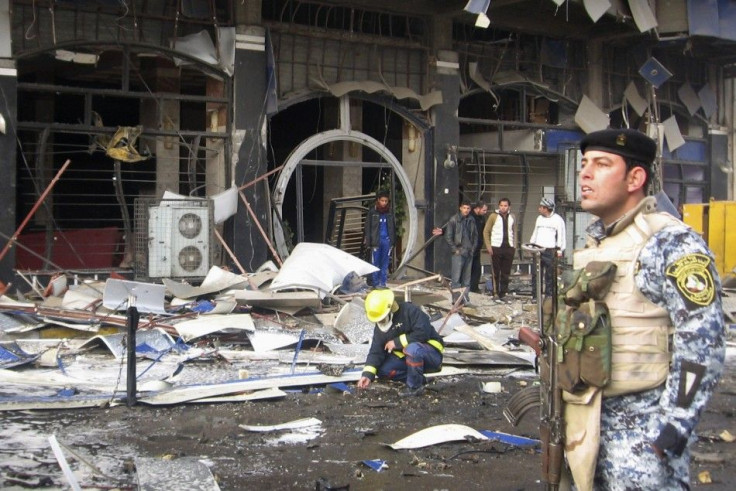Iraq: Scores Die As Sectarian Violence Intensifies

At least six dozen people have died and more than 100 injured after a series of suicide bombings struck Shia regions of Iraq, intensifying fears the country is sinking into a sectarian civil war, according to reports.
Shia Muslims were targeted in the Sadr City and Kadhimiyah neighborhoods of Baghdad, as well as parts of southern Iraq, including Nassiriya where pilgrims were attacked.
A police officer in Baghdad told Reuters: There was a group of day laborers gathered, waiting to be hired for work. Someone brought his small motorcycle and parked it nearby. A few minutes later it blew up, killed some people, wounded others and burned some cars.”
A local laborer named Ahmed told Agence France Presse: Political leaders fight each other for power, and we pay the price.
Despite the nature of the killings and the identity of the victims, a spokesman for the Baghdad army, Major General Qassim al-Moussawi, told reporters that it would be premature to speculate who was behind what appears to be a well-coordinated campaign of mass murder.
Thursday’s carnage represented the worst brutality in Iraq since 60 people were killed by explosions in late December in Baghdad.
Iraq is dominated by Shia Muslims, but has a sizable Sunni minority. The cabinet of Prime Minister Nouri al-Maliki is also run by Shias. Last month he issued an arrest warrant for the most prominent Sunni politician in Iraq, vice-president Tariq al-Hashemi, who is reportedly hiding out in the Kurdish-dominated north, where he is under protection.
Sunni politicians in Baghdad are effectively boycotting parliament, citing that Maliki is seeking to minimize or eliminate their influence in government.
With the departure of U.S. troops in December, the security situation in Iraq remains extremely dire and worrisome.
© Copyright IBTimes 2025. All rights reserved.




















